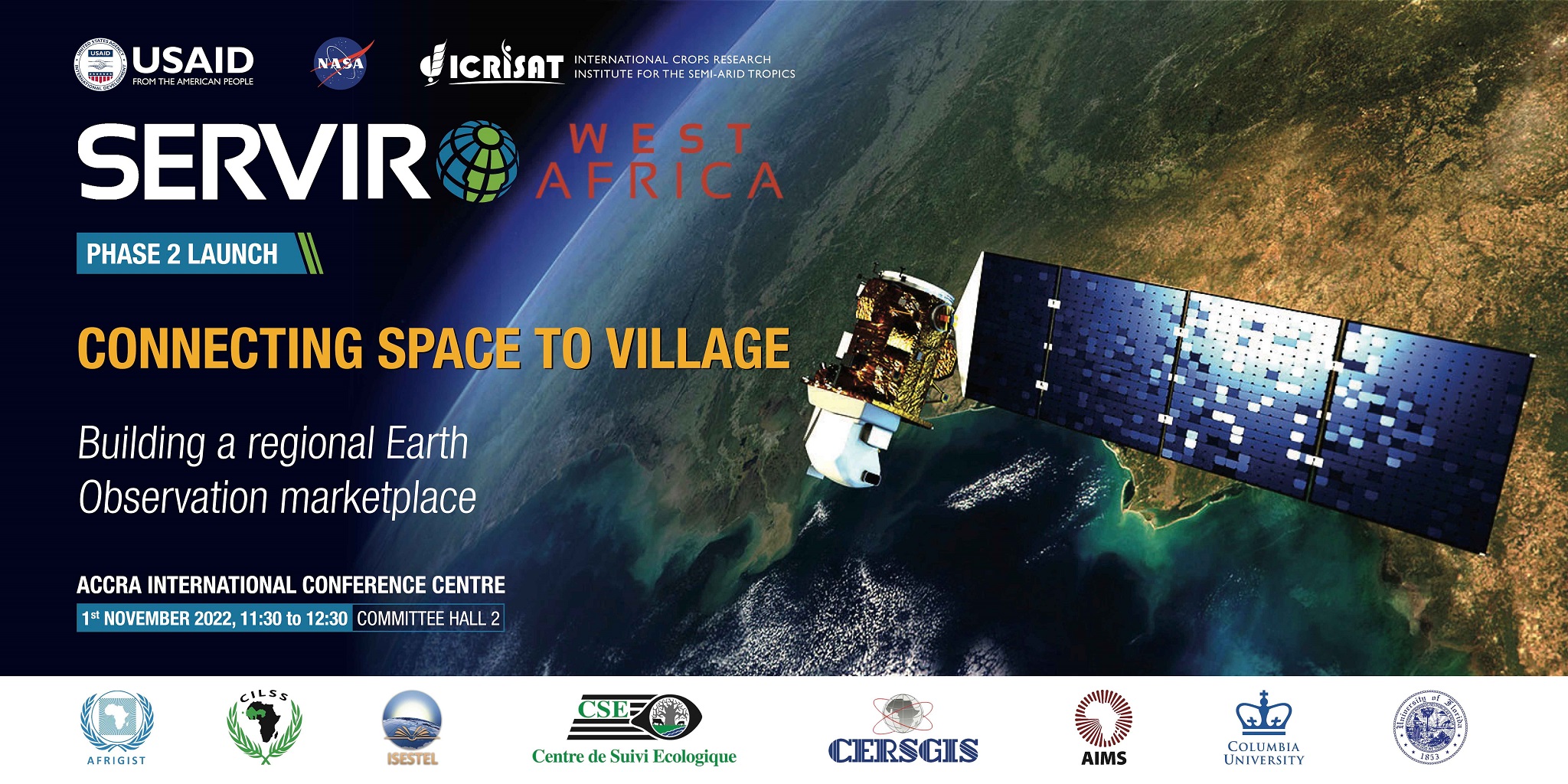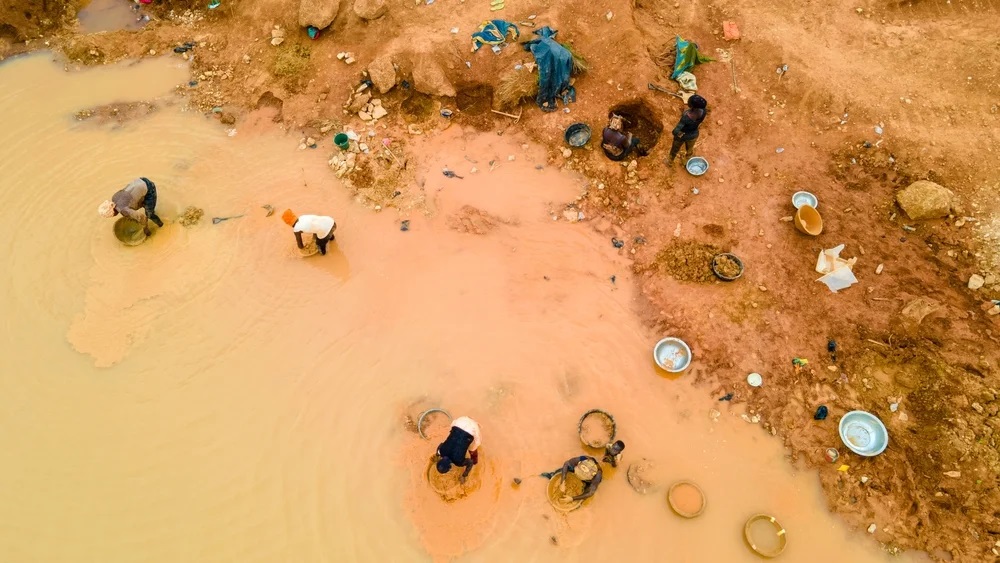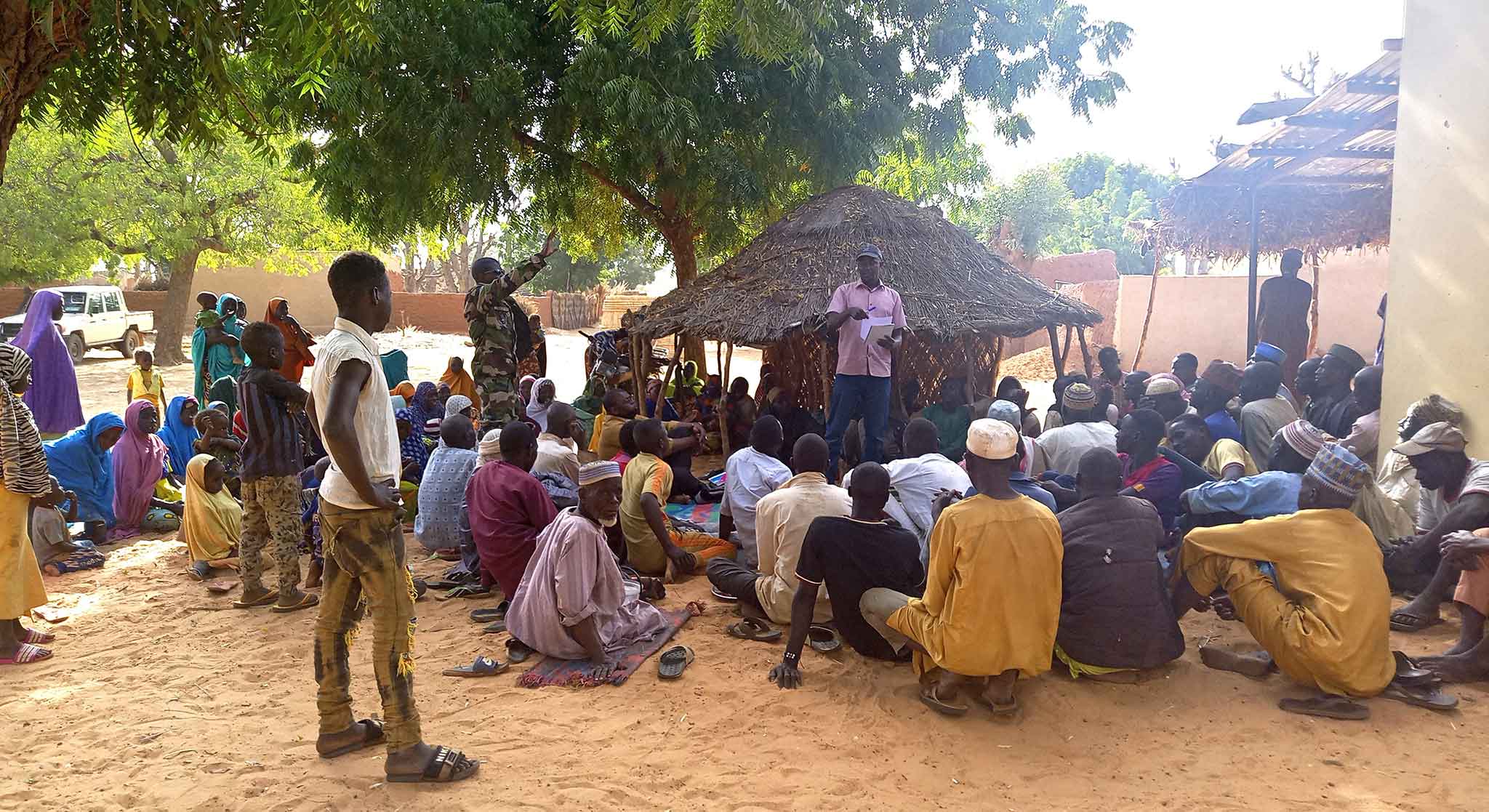The United States Agency for International Development (USAID) in collaboration with NASA, implementing partner ICRISAT and scientific partners launched the second phase of the SERVIR West Africa program, known as SERVIR West Africa 2. The launching event was held at the Accra International Conference Centre, Ghana on Tuesday 1st November 2022.
A joint initiative between USAID and NASA as well as leading geospatial organizations in Asia, Africa, and Latin America, SERVIR connects space to the village by using satellite data to address critical development challenges which affect communities on the ground.
The lead of NASA Earth Science’s Applied Sciences Program, Lawrence Friedl, said the agency is excited about all the many innovations and achievements this new phase will achieve.
“Together with people and institutions in the region, SERVIR West Africa 2 will lead to bigger and better ways geospatial and Earth science information benefits the region, building on the successes of the first phase,” Director Friedl noted.
In this second phase, USAID has committed nearly $16 million over the next five years to help West African countries use satellite data to address development challenges in food security and agriculture; water and hydro-climatic disasters; weather and climate; land cover and land use change; ecosystems services; and a newly introduced financial service.
During the SERVIR WA 2 launch event, USAID West Africa Mission Director Jo Lesser-Oltheten highlighted the unique contributions of SERVIR to achieving development goals.
“Geospatial technology is essential for providing evidence to shape development progress, address climate change and deliver lifesaving humanitarian assistance,” Mission Director Lesser-Oltheten added.
Director General at ICRISAT, Dr. Jacqueline Hughes applauded USAID, NASA and regional partners for launching SERVIR West Africa 2 and the commitment it represents to the governments and people of the region.
“Through geospatial technology, we will continue to generate critical knowledge that informs good governance and public policy for better nutrition, food security, climate resilience and a host of other outcomes that we collectively seek for dryland communities in West Africa and beyond,” said Dr. Jacqueline
This year’s GEO Week convened government institutions, academic and research institutions, data providers, businesses, engineers, scientists, and experts to create innovative solutions to global challenges at a time of exponential data growth, human development, and climate change that transcend national and disciplinary boundaries.
“How we choose to achieve this change is of paramount importance. We need to identify the most efficient pathways to connect space to village, to sustainable cities, to farms, to industries, and more. ICRISAT strongly believes in bringing innovative institutional arrangements to the fore in space technology applications, and to promote SERVIR as a broker of contextually intelligent solutions,” said Dr Ramadjita Tabo, Regional Director, ICRISAT-West and Central Africa at the launching event.
The first phase of SERVIR WA was launched in 2016. This second phase will be implemented in collaboration with several West African institutions as well as universities and international organizations including the Regional Center for Agrometeorology, Hydrology and Meteorology, the African Regional Institute for Geospatial Information Science and Technology, the Centre de Suivi Écologique, the Center for Remote Sensing and Geographic Information Services, the Institut supérieur d’études spatiales et des télécommunications, the African Institute of Mathematical Science (AIMS), the University of Florida, and Columbia University.
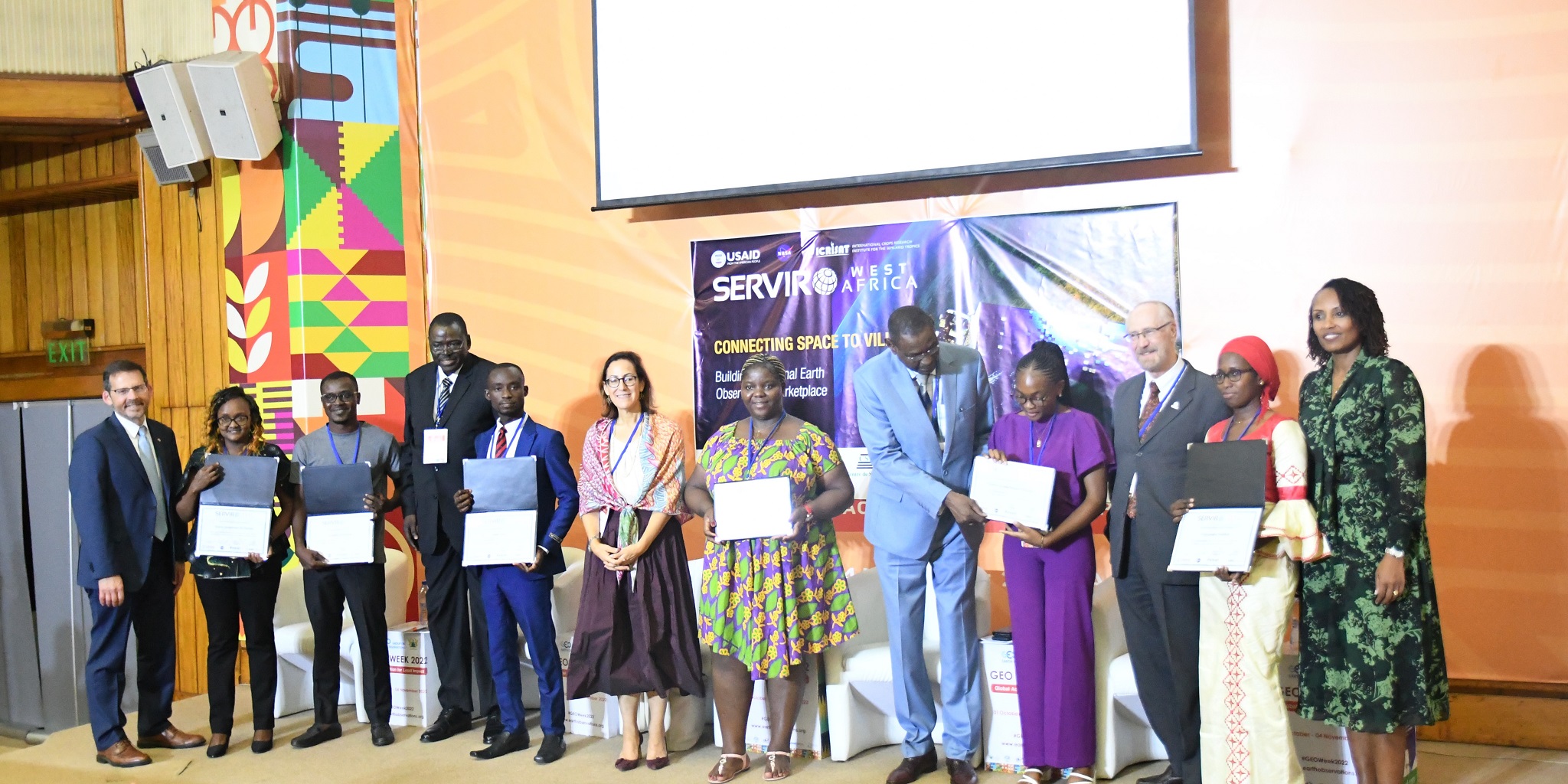
The newly launched SERVIR Program comprised 5 thematic areas. A new SERVIR service area on Financial Instruments aim to developing the use of EO for inclusive finance, a key instrument for poverty alleviation and sustainable development. This service area include a Small Innovation Grant program in which next-gen African computational scientists channeled by the African Institute for Mathematical Sciences (AIMS) network are incubated by SERVIR partners to accelerate service development, deployment, and institutional change. A first cohort the Small innovations grants of the second phase of the SERVIR Programme in West Africa received their awards on the occasion of the launching event.
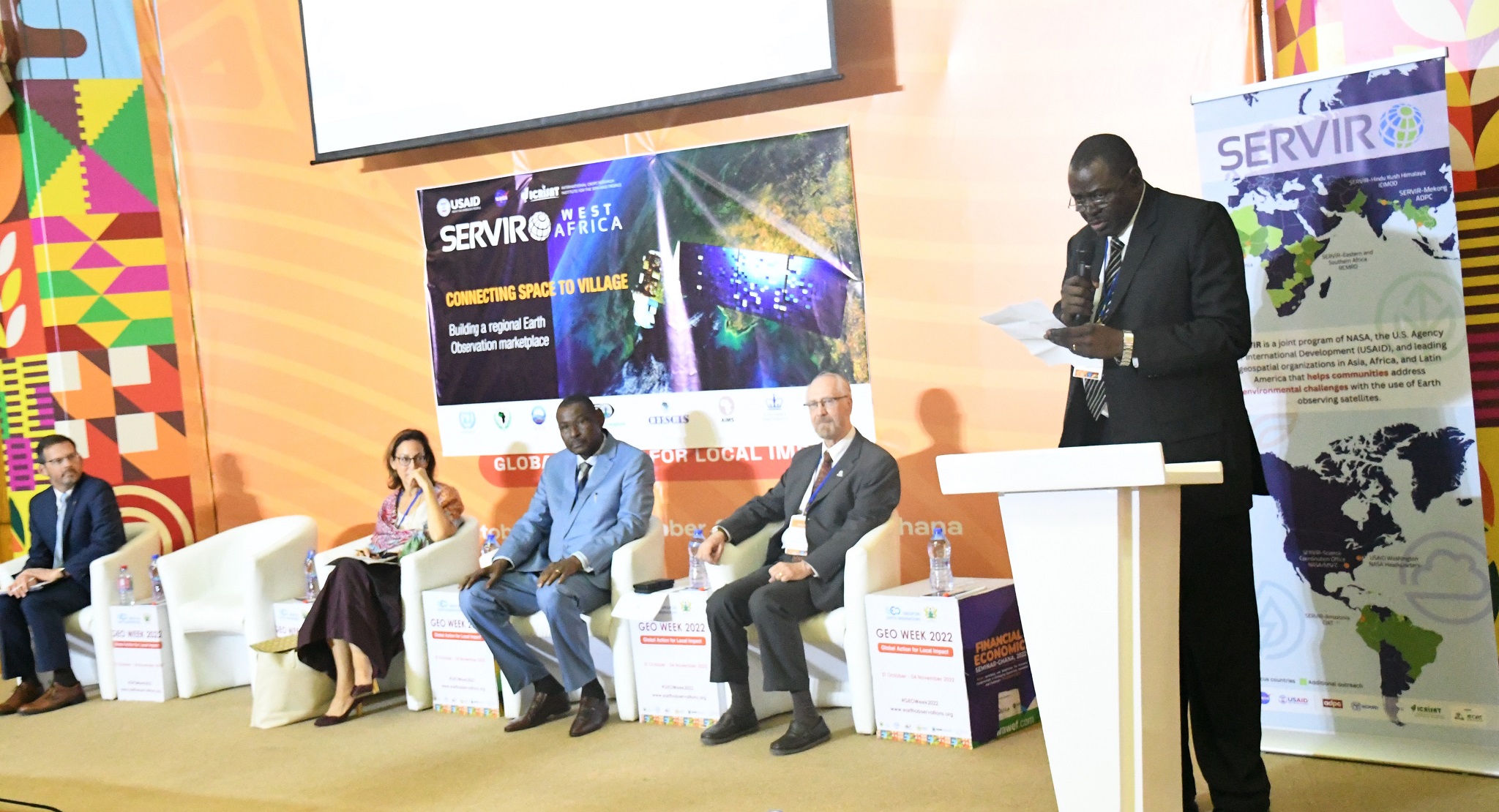
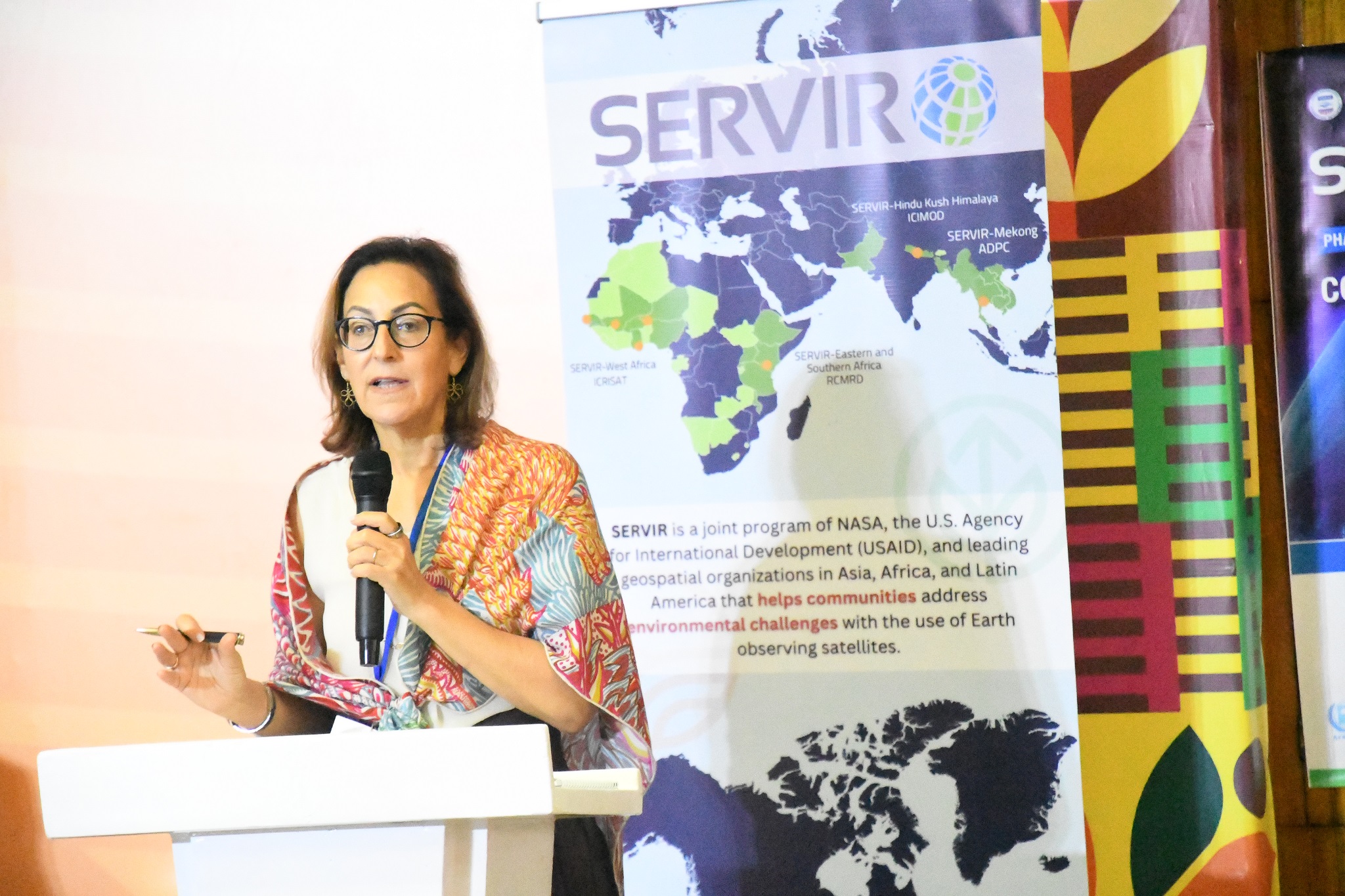
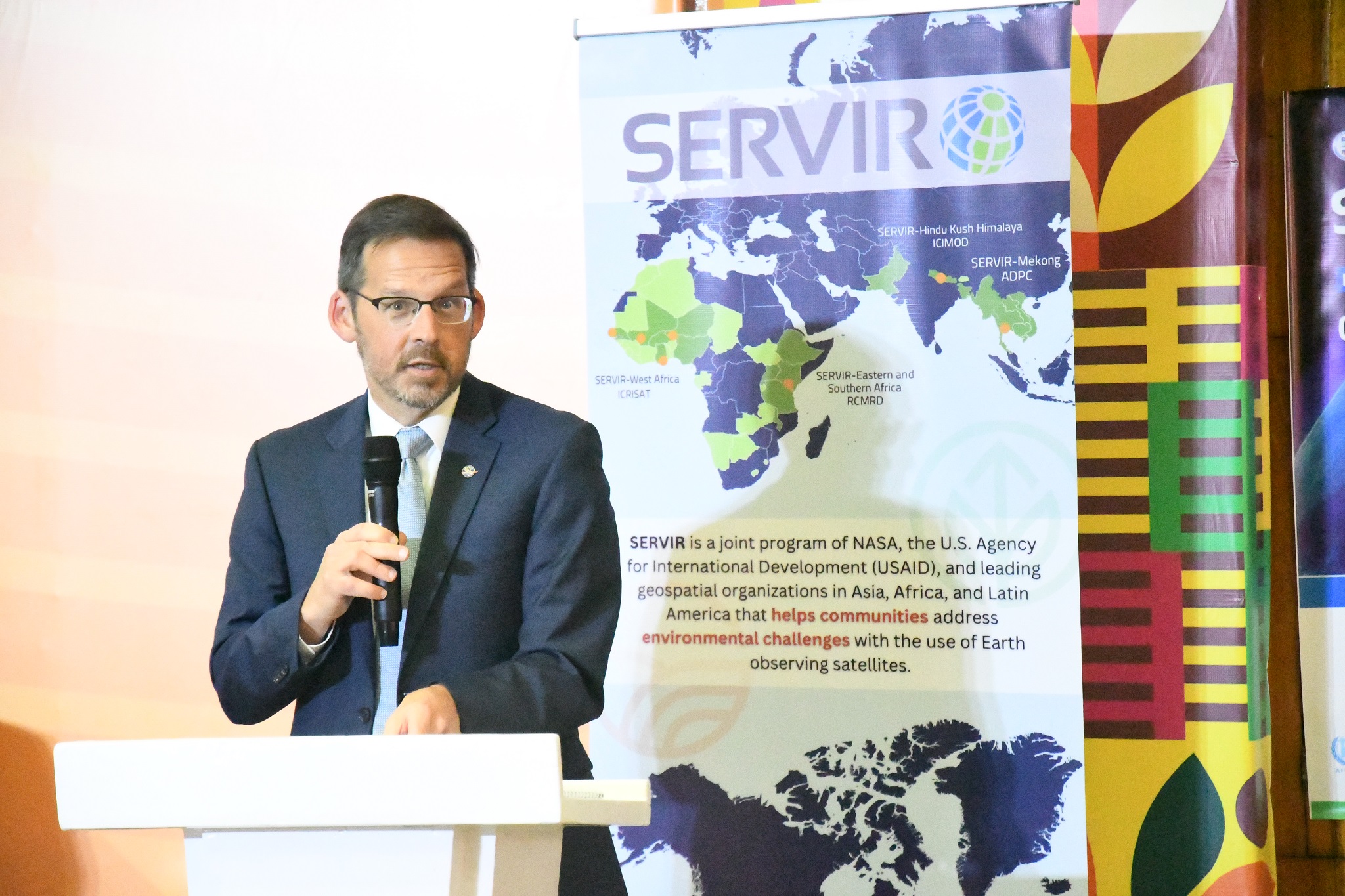
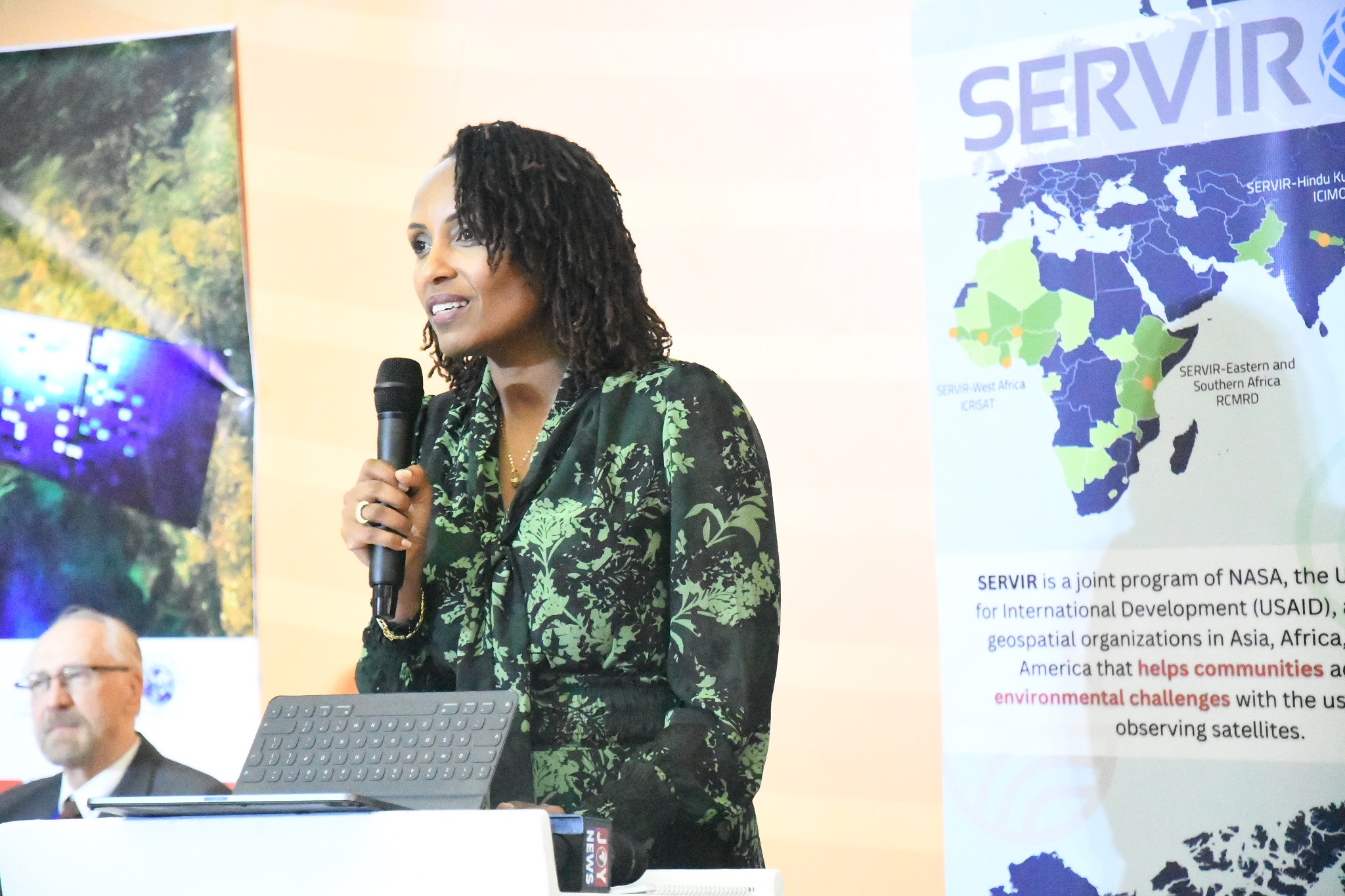
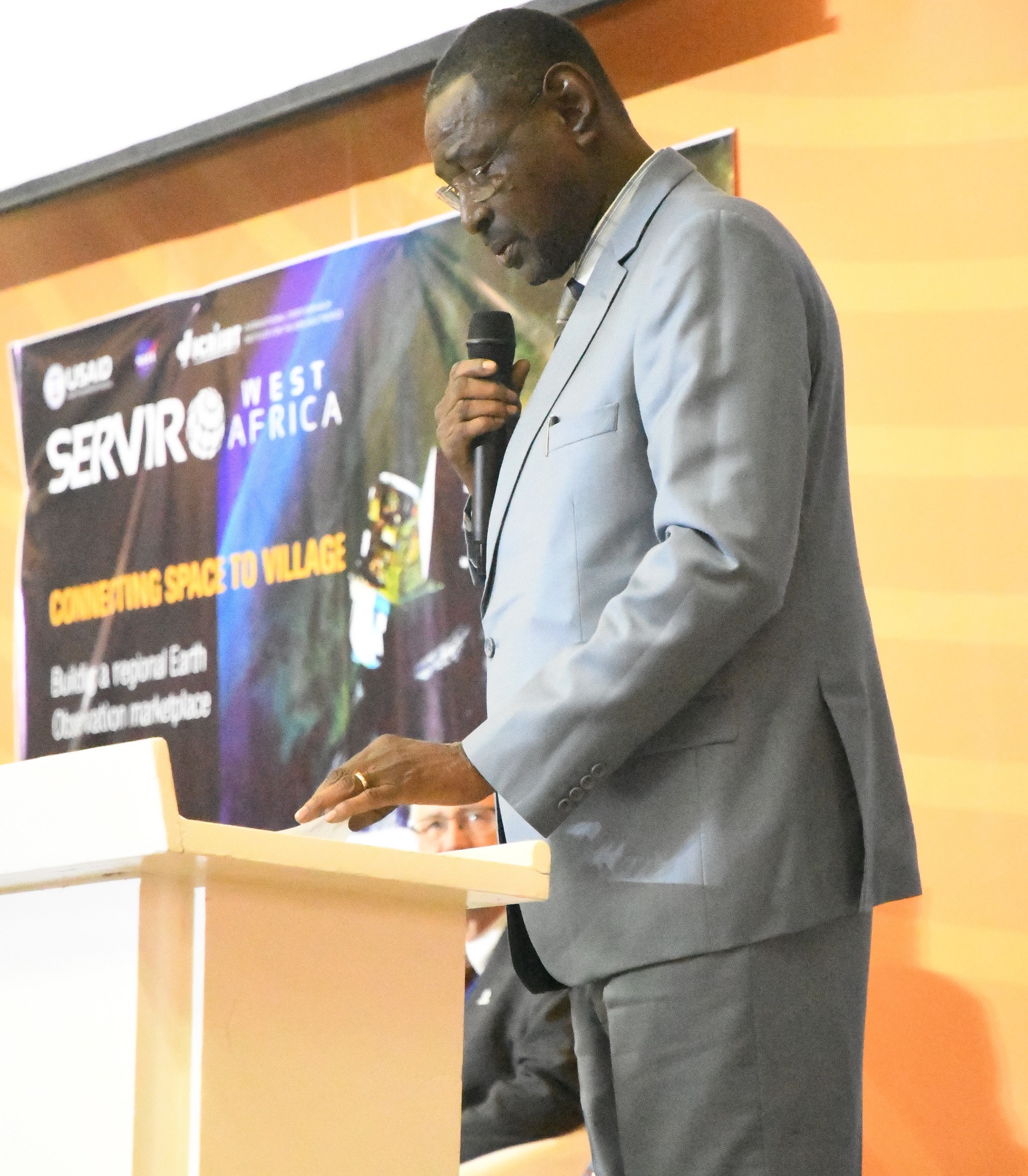
Header image: NASA

